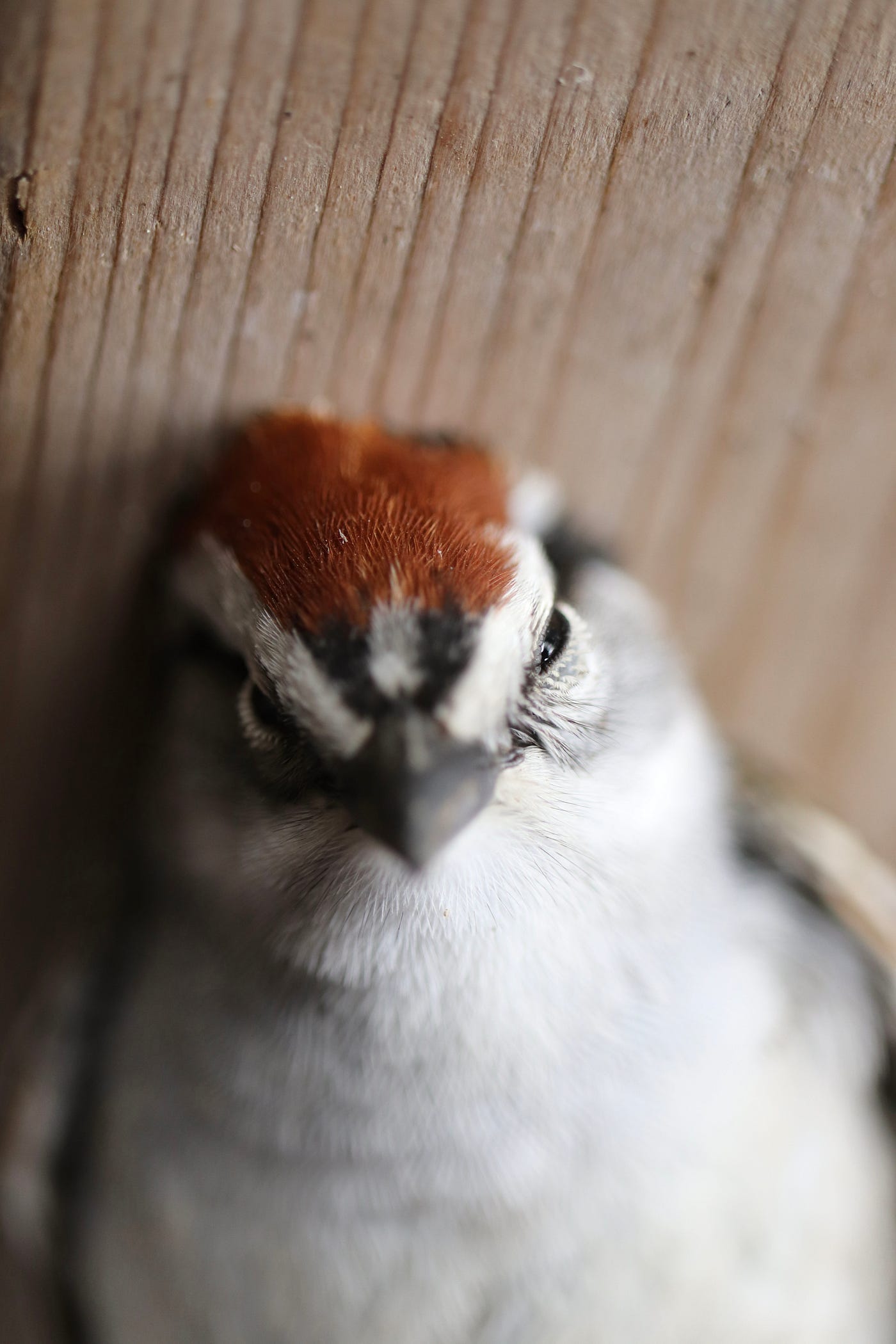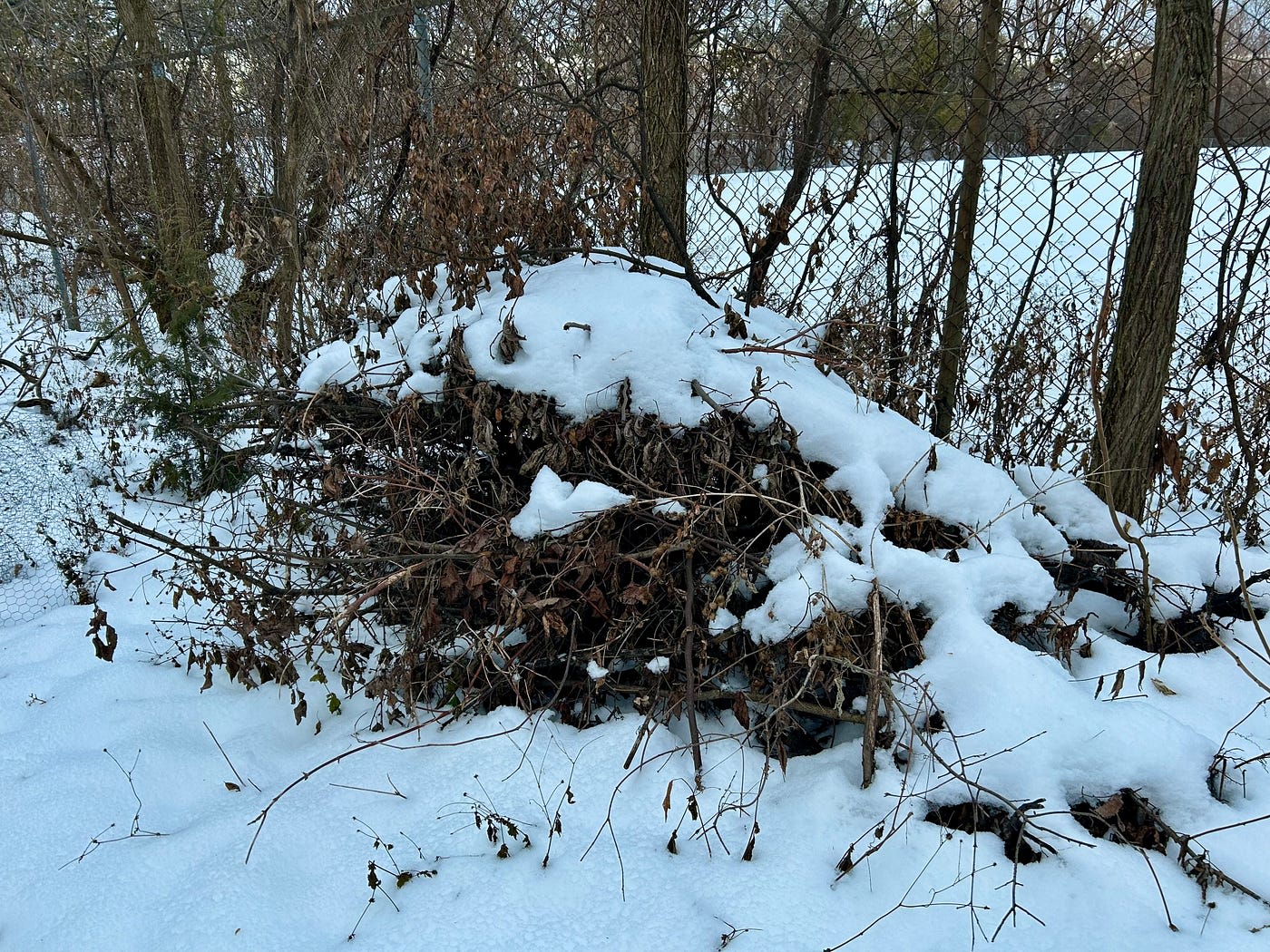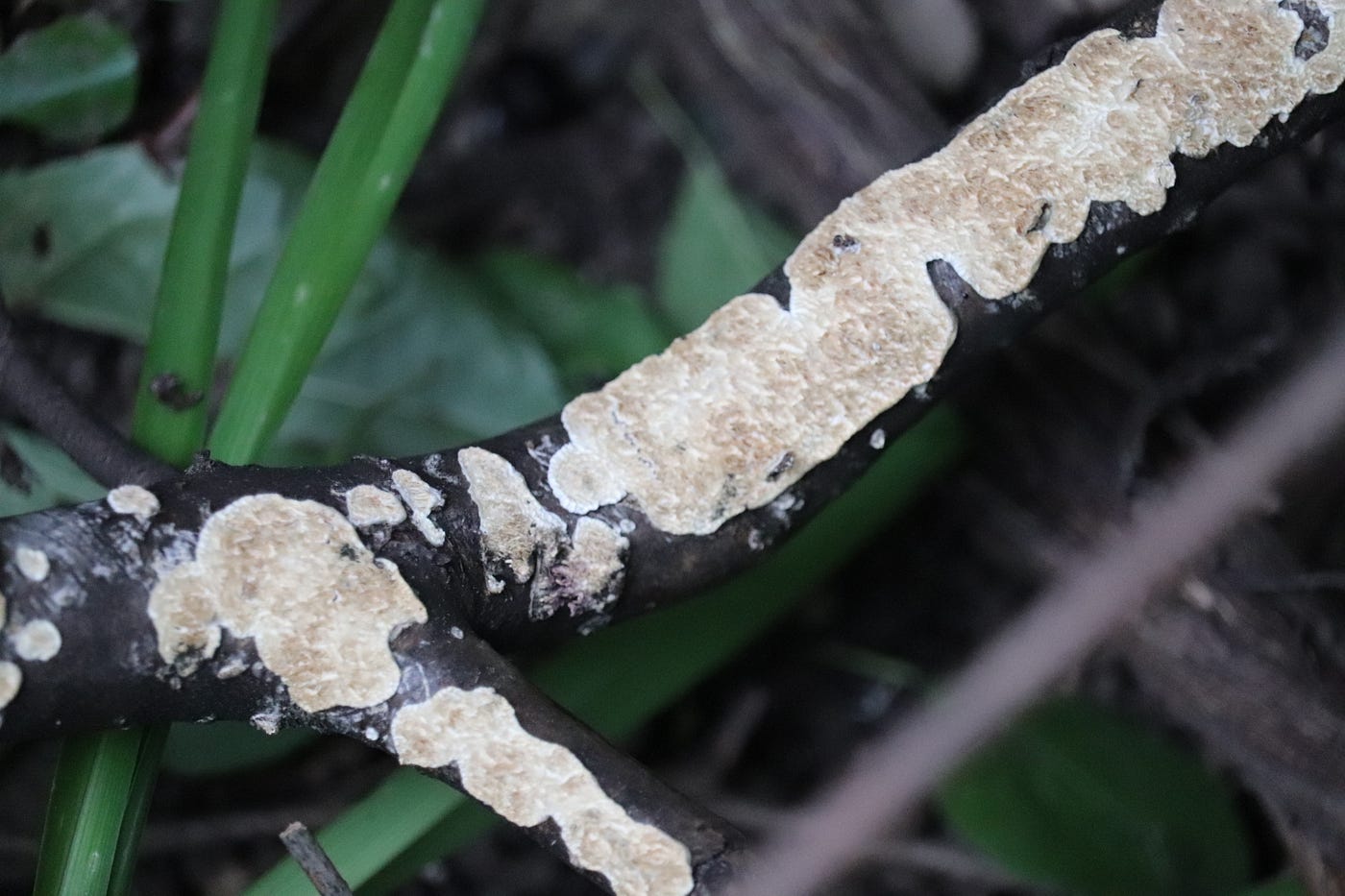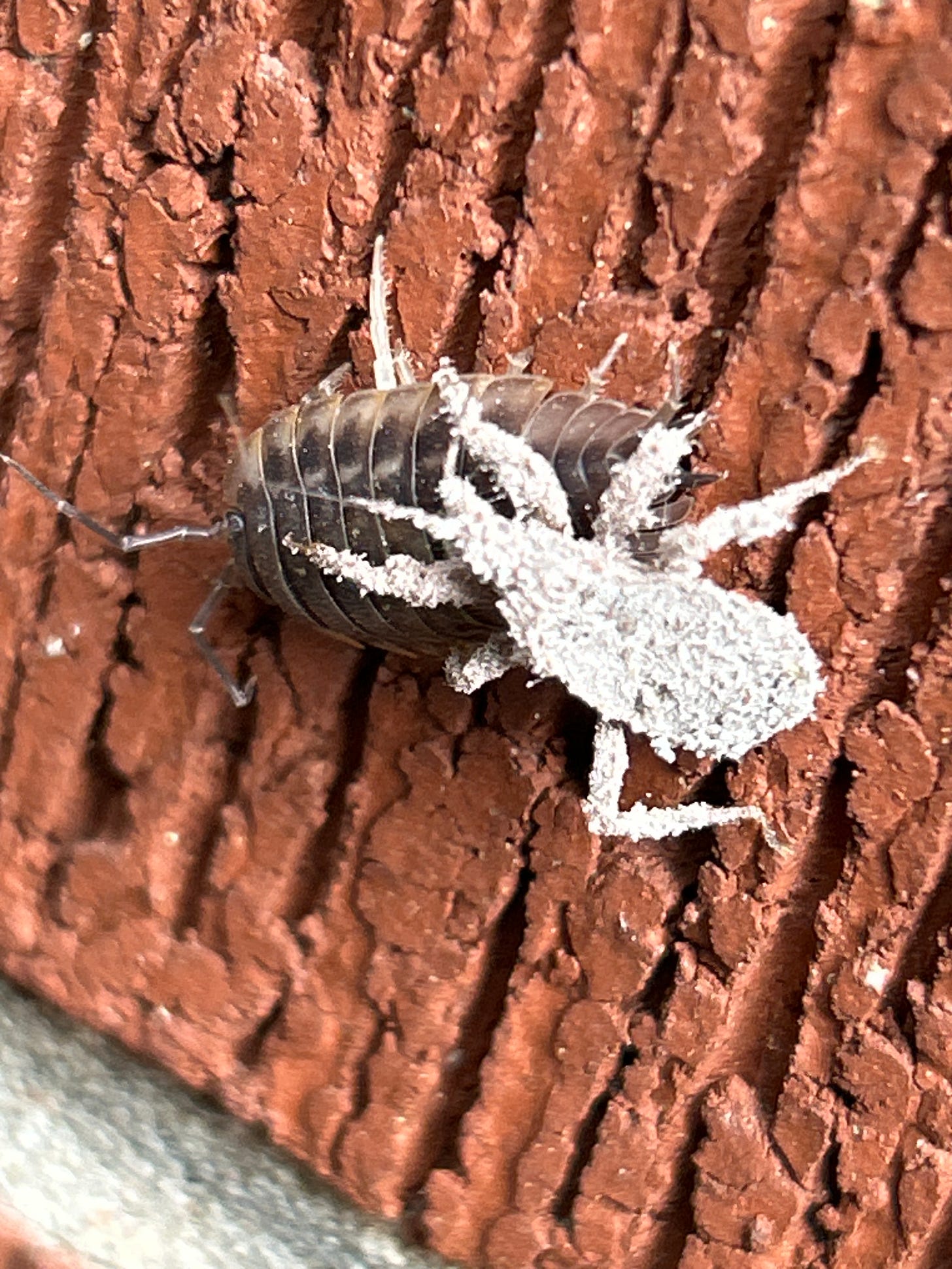The (Re)Cycle of Life
Celebrating Death as the Harbinger of Life
The thing about the human lifespan is that it allows you to imagine you will live forever right up until you realize you won’t. We spend our teens and twenties making risky decisions and experimenting with life. Maybe we have kids in our thirties and forties, and spend time wondering at the innocence of youth and when we will have the time to go back to all that fun experimenting. Then you hit your fifties, and suddenly you realize that life has an expiration date, only you can’t find the actual date on the packaging, so it could be in fifty more years or next week.
Death has a way of changing one’s perspective. Maybe that’s why we hide from it so much. Just like taxes, we all know it is inevitable, yet we are always surprised and upset when confronted by it. Nature doesn’t have such qualms.
Having spent the past five years focused on all of the living things in my yard, it makes sense to also look at life’s opposite. As much as my yard is teaming with life the closer I look, it is also teaming with death. I don’t just mean the voles my cat preys on and the odd bird that flies into a window looking to land on a houseplant. There are insect and plant funerals happening on the daily in all of our backyards. And there’s nothing wrong with that. Death is part of the natural cycle of things. Populations remain stable. Nutrients get recycled. Cultures evolve. Without death, there would be no life, as the only things that go on forever were never alive to begin with.
Oddly, the culture I grew up in likes to pretend death doesn’t exist. It is treated like a dark family secret that everyone has silently agreed to never speak of. Sure our movies and TV shows use death as a plot device to either play on our emotions or glorify the hero, but that is fake death. The real thing is hidden away out of sight, so that we can go on pretending that we will be young forever. Even old age has become taboo, hidden behind botox and retirement homes, so that we don’t get reminded of the inevitable. It’s unfortunate, really, as we also lose out on the joys of intergenerational learning and embracing a life fully lived. This charade can also be seen in our yard maintenance habits.
Unlike humans, many of our non-human neighbours have lifespans that are counted in days, weeks or months rather than years. Much as spring is the beginning of an annual rebirth of life, fall is an annual reminder that all good things must come to an end. Rather than celebrating this part of the cycle though, we tidy up the signs of decay lest we remember. Dead leaves are bagged. Dead plants are cut back. Dead wood is chopped. It makes for orderly and uniform neighbourhoods, but misses the point that death is a crucial component of life.
As discussed earlier, all those dead leaves are also the living rooms for a diversity of species holing up for the winter. The dead plants provide ideal chambers in their hollow stalks for bees, wasps and other insects to lay their eggs, waiting to reemerge in spring. The dead wood provides food for fungi that then feed the insects that then feed the birds, all the while providing shelter in their hollowed out trunks. Nature relies on death to enable many living things to eat, hide and grow. When we remove the signs of decay that bother us by cluttering up our yards, we are removing the homes, food and offspring of all that we appreciate in spring. Without death, there is no life.
Not that I appreciate all living things. The invasive species that clutter up my yard have become the bane of my existence and are ripe for the plucking. My efforts to eradicate buckthorn trees from my Greater Yard Area, in particular, have created an abundance of dead roots and branches that have piled up in different parts of my yard. At first, I saw these brush piles as a nuisance that I would need to clear out every couple of years. As I learned more though, I realized that they were actually sanctuaries.
Once again, the birds showed me the way. I noticed that several of the smaller warblers that didn’t come to the feeders would spend time hopping around the brush piles. The tight spaces, tasty decomposing vegetation and insulated warmth of the pile was a haven for a variety of insects, which made it an equally desirable buffet destination for the birds. Turkey tail and crust fungi would also take advantage of this feast of wood, adding to the species diversity in my yard.
More recently, I’ve learned that you can create dead hedges out of your pruned trees and yard waste for a more orderly version of a brush pile. I haven’t tried this out myself yet, but I can see the allure. Basically, you build a simple, linear wood frame and then pile all your dead wood and such into the structure. It then acts as a visual barrier/feature while also providing all the ecosystem benefits of micro-habitats, bird perches and nutrient recycling.
A brush pile shouldn’t be confused with a compost pile though. The brush pile is to wood waste what the compost pile is to food waste. You don’t want to be dumping your rotten tomatoes into your dead hedge. In our gardening days, the compost pile was our entry into the life affirming properties of dead organic matter. Banana peels and wilted lettuce would be magically turned into rich compost to feed our garden soil. It also became the main food source for my neighbourhood raccoons and squirrels, however, so we have switched to using the city’s green bin program for our food scraps rather than our backyard compost pile/raccoon trough.
We may have a closer relationship with death as we get older, but the truth is that the expiration date was always there. Living for another fifty years or until next week is just as valid at fifty as it is at five, fifteen or twenty-five. We are just blissfully ignorant in those halcyon days. Would it be better to be a Greenland shark, living for 400 years content in the cold, dark depths of the Arctic Ocean without a care in the world? Or perhaps we would have a healthier appreciation for life and death as a mayfly, with only a day or two in our adult form to live out all the pleasures that entails? As enticing as it is to imagine living forever, our species has evolved to only live for so long for a reason. Maybe some of us feel the need to put ourselves in a can to extend our shelf lives, but I would rather enjoy the ride for as long as it lasts. Why not celebrate the ending? After all, dessert is often the best part of a meal.





